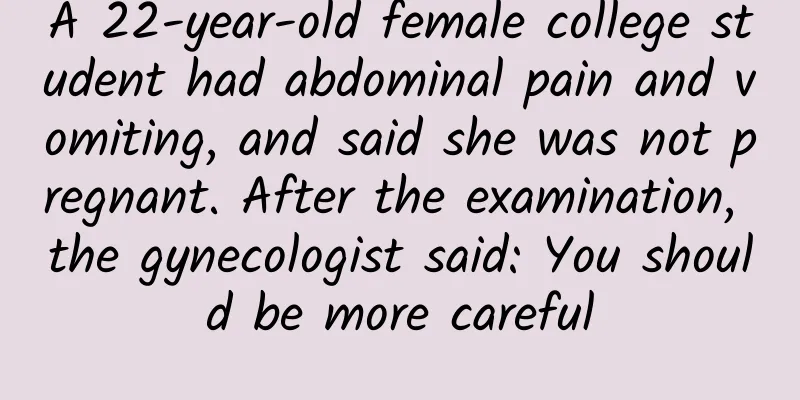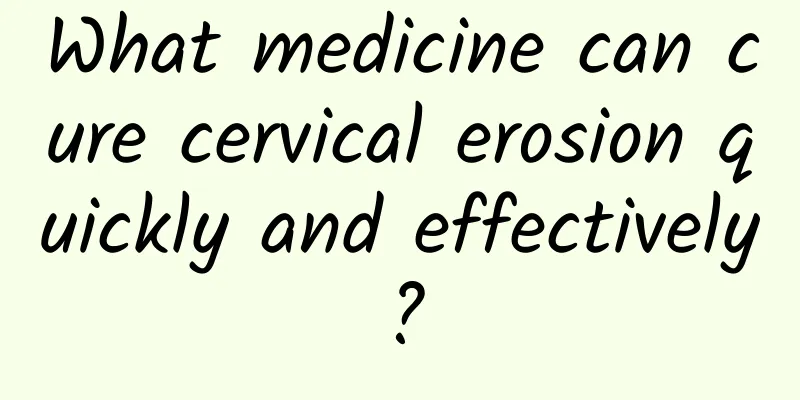Different medications are used for candidal vaginitis at different stages

|
Generally speaking, the medication methods for candidal vaginitis are different in different stages. For example, simple vulvovaginal candidiasis is mainly treated with vaginal medication; severe vulvovaginal candidiasis is mainly treated with oral medication; recurrent vulvovaginal candidiasis is mainly treated with enhanced and consolidated treatment; medication should be used with caution during pregnancy with vulvovaginal candidiasis; vaginal medication is chosen for candidal vaginitis during lactation; and those who have no sexual life are not affected by medication. 1. Simple vulvovaginal candidiasis: vaginal medication is the main treatment The symptoms are relatively mild. Although there is itching in the vulva, it is not very serious and is easy to cure. Vaginal medication is preferred. Showering method, rinse the vulva with warm water. Oral medication is as effective as topical medication. In addition, do not use care solution and do not sit in the bath. 2. Severe vulvovaginal candidiasis: oral medication is the main treatment The symptoms are relatively serious, generally manifested as dreg-like leucorrhea, vulvar erythema, edema, often accompanied by scratches, chapped skin, epidermal excoriation, vaginal erosion, cervical congestion and other symptoms. There is a unified medication standard in my country for the cure of vulvovaginal candidiasis. The regular treatment methods are oral medication and local treatment, and injection. Oral medication is the first choice, and medication can be applied after vaginal washing (non-menstrual period). In addition, the vulva should be cleaned regularly. Generally, 4% soda water is used to clean the vagina. It is best to go to the hospital for cleaning, because the bacteria attached to the vaginal wall can be flushed away in the hospital, and the flushing volume is large, ensuring thorough and clean cleaning. Generally, it is cleaned once a day, and the price is relatively cheap. 3. Recurrent vulvovaginal candidiasis: Strengthening and consolidating treatment Some women have 4 or more episodes within a year after being cured. The treatment used includes intensive treatment and consolidation treatment. After the intensive treatment achieves fungal cure, consolidation treatment is required for at least half a year. Care should be taken when using medications for recurrent vulvovaginal candidiasis, as some drugs may develop drug resistance after use. Bacterial culture and drug sensitivity tests are needed, and the drug should be reselected based on the results. 4. Pregnancy complicated by vulvovaginal candidiasis: Use medication with caution Pregnancy complicated by vulvovaginal candidiasis is slow to respond to anti-Candida treatment and is prone to relapse. For local treatment, choose vaginal medication that is harmless to the fetus, and a 7-day treatment is effective. If the symptoms of vulvovaginal candidiasis are severe, it may cause miscarriage or premature birth. In addition, it will affect the health of the fetus, making it more susceptible to bacterial infection and the baby more susceptible to diseases such as oral thrush and dermatitis after delivery. 5. Fungal vaginitis during lactation: vaginal medication It is best for breastfeeding women not to use oral medications, but vaginal medications can be chosen. 6. People who have no sex life: medication will not be affected For patients who are infected with candidal vaginitis without having sex, don't worry about being affected after taking the medication. Even if you choose to take the medication vaginally, correct operation will not damage the hymen. Vulvovaginal candidiasis is a "small disease, big trouble". In the treatment process, not only should the right treatment methods and drugs be selected, but also many small problems should be paid attention to after recovery, so as to reduce the risk of recurrence, improve the effect of cure, and avoid recurrence! There are targeted treatment methods for patients with different symptoms. It is recommended that patients go to the hospital for treatment and eliminate the inducement. |
<<: How to treat candidal vaginitis in unmarried women
>>: What should you pay attention to in order to completely cure candidal vaginitis?
Recommend
What is postmenopausal bleeding?
Vaginal bleeding will not occur after menopause. ...
How much does it cost to treat female pelvic peritonitis?
The incidence of pelvic peritonitis has been incr...
What to do if you have irregular menstruation after uterine fibroid surgery? What to do if you have irregular menstruation after uterine fibroid surgery?
Uterine fibroids Irregular menstruation after ute...
Don't be afraid of the cold - Song Minghua's 10 tips for keeping fit
The temperature suddenly turns mild after freezin...
To reduce the harm of abortion, you need to choose the best time for abortion
Abortion is one of the best ways to solve unwante...
Keep a positive attitude when treating chronic pelvic inflammatory disease
Among women's diseases, pelvic inflammatory d...
What to do if you have cervical erosion? Female patients can use 4 treatments
Although cervical erosion may be a physiological ...
How should women prevent irregular menstruation?
How should women prevent irregular menstruation? ...
What are the dangers of cervical warts
Cervical warts are a very harmful disease that ca...
Why does pelvic peritonitis keep recurring?
Why does pelvic peritonitis keep recurring? This ...
How to prevent miscarriage in early pregnancy
How to prevent early miscarriage? Among all the s...
How to treat pelvic inflammatory disease with diet
How should dietary treatment for pelvic inflammat...
What should I do if I have an ovarian cyst? Will it affect my pregnancy?
Ovarian cysts are common gynecological diseases, ...
Man dies from excessive exercise! 4 tips for exercising safely
I love to eat big meals but I am afraid of gettin...
The difference between benign and malignant ovarian cysts
What are the symptoms of ovarian cysts? What are ...









